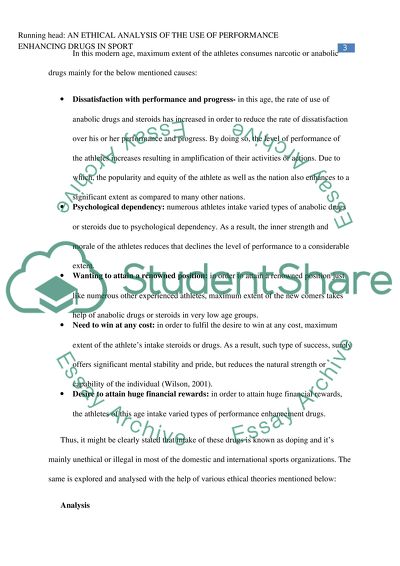Cite this document
(Performance Enhancing Drugs in Sport Essay Example | Topics and Well Written Essays - 2500 words, n.d.)
Performance Enhancing Drugs in Sport Essay Example | Topics and Well Written Essays - 2500 words. Retrieved from https://studentshare.org/sports-and-recreation/1639879-business-ethics-an-ethical-analysis-of-the-use-of-performance-enhancing-drugs-in-sport
Performance Enhancing Drugs in Sport Essay Example | Topics and Well Written Essays - 2500 words. Retrieved from https://studentshare.org/sports-and-recreation/1639879-business-ethics-an-ethical-analysis-of-the-use-of-performance-enhancing-drugs-in-sport
(Performance Enhancing Drugs in Sport Essay Example | Topics and Well Written Essays - 2500 Words)
Performance Enhancing Drugs in Sport Essay Example | Topics and Well Written Essays - 2500 Words. https://studentshare.org/sports-and-recreation/1639879-business-ethics-an-ethical-analysis-of-the-use-of-performance-enhancing-drugs-in-sport.
Performance Enhancing Drugs in Sport Essay Example | Topics and Well Written Essays - 2500 Words. https://studentshare.org/sports-and-recreation/1639879-business-ethics-an-ethical-analysis-of-the-use-of-performance-enhancing-drugs-in-sport.
“Performance Enhancing Drugs in Sport Essay Example | Topics and Well Written Essays - 2500 Words”, n.d. https://studentshare.org/sports-and-recreation/1639879-business-ethics-an-ethical-analysis-of-the-use-of-performance-enhancing-drugs-in-sport.


